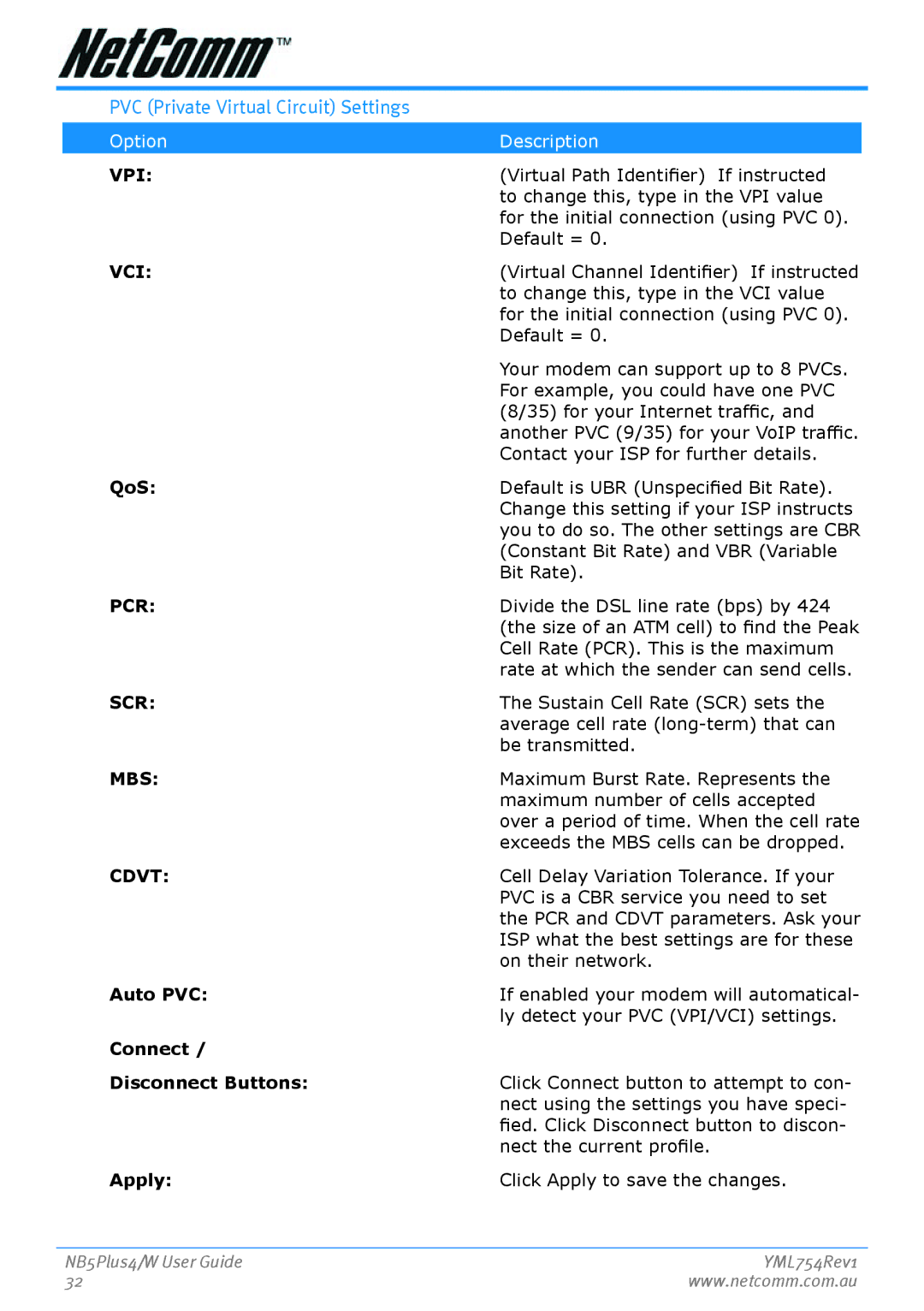
PVC (Private Virtual Circuit) Settings
Option | Description |
VPI: | (Virtual Path Identifier) If instructed |
| to change this, type in the VPI value |
| for the initial connection (using PVC 0). |
| Default = 0. |
VCI: | (Virtual Channel Identifier) If instructed |
| to change this, type in the VCI value |
| for the initial connection (using PVC 0). |
| Default = 0. |
| Your modem can support up to 8 PVCs. |
| For example, you could have one PVC |
| (8/35) for your Internet traffic, and |
| another PVC (9/35) for your VoIP traffic. |
| Contact your ISP for further details. |
QoS: | Default is UBR (Unspecified Bit Rate). |
| Change this setting if your ISP instructs |
| you to do so. The other settings are CBR |
| (Constant Bit Rate) and VBR (Variable |
| Bit Rate). |
PCR: | Divide the DSL line rate (bps) by 424 |
| (the size of an ATM cell) to find the Peak |
| Cell Rate (PCR). This is the maximum |
| rate at which the sender can send cells. |
SCR: | The Sustain Cell Rate (SCR) sets the |
| average cell rate |
| be transmitted. |
MBS: | Maximum Burst Rate. Represents the |
| maximum number of cells accepted |
| over a period of time. When the cell rate |
| exceeds the MBS cells can be dropped. |
CDVT: | Cell Delay Variation Tolerance. If your |
| PVC is a CBR service you need to set |
| the PCR and CDVT parameters. Ask your |
| ISP what the best settings are for these |
| on their network. |
Auto PVC: | If enabled your modem will automatical- |
| ly detect your PVC (VPI/VCI) settings. |
Connnect / |
|
Disconnnect Buttons: | Click Connect button to attempt to con- |
| nect using the settings you have speci- |
| fied. Click Disconnect button to discon- |
| nect the current profile. |
Apply: | Click Apply to save the changes. |
NB5Plus4/W User Guide | YML754Rev1 |
32 | www.netcomm.com.au |
